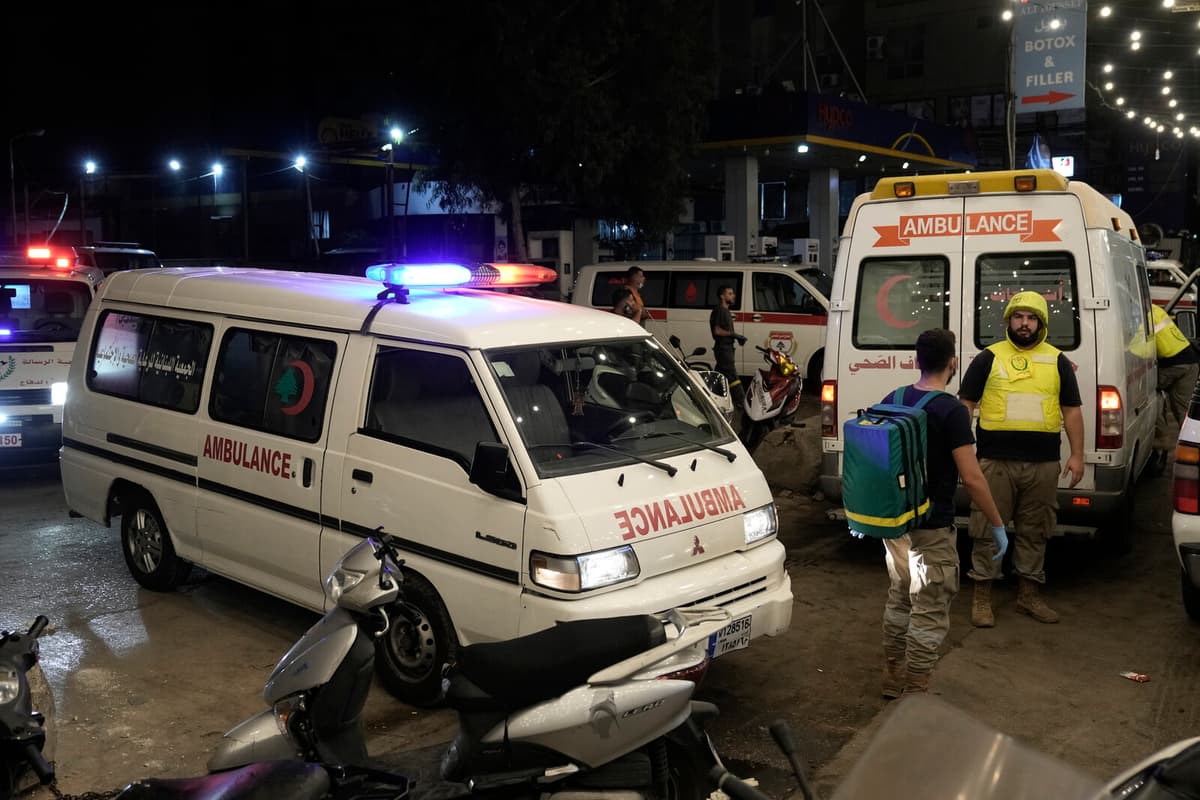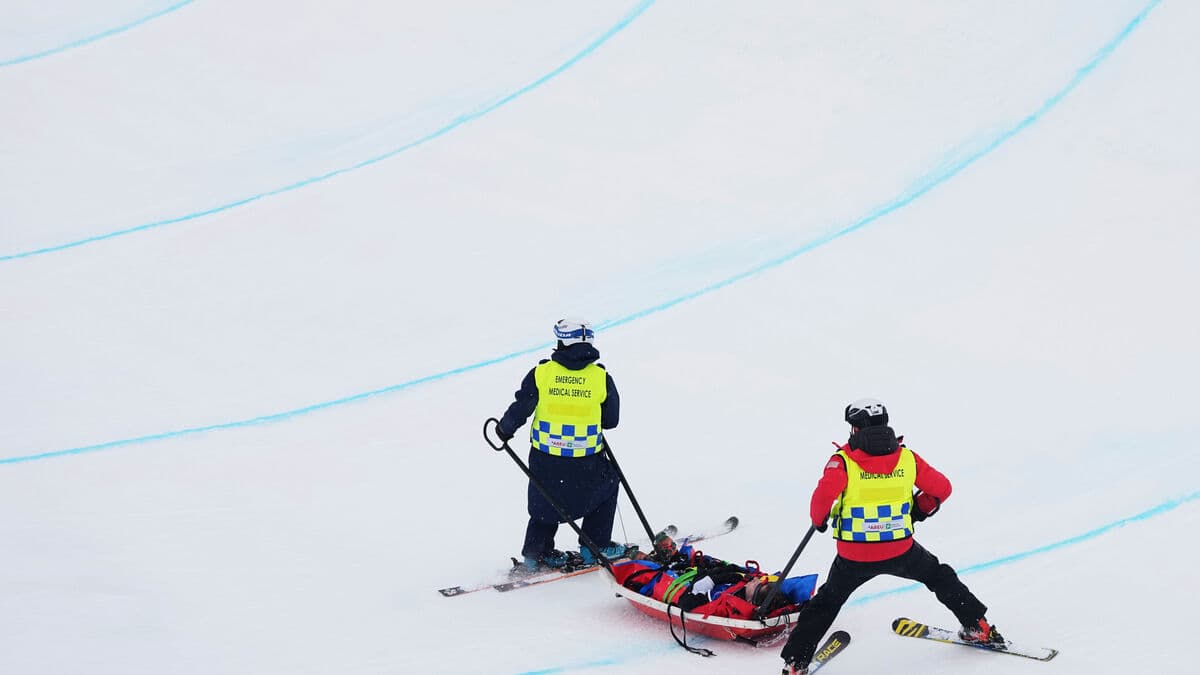Israel's large-scale air strikes from early morning to late Monday evening have, according to Lebanon's Health Department, claimed at least 492 lives and injured over 1,600 people. Among the victims are at least 35 children and several healthcare workers.
The reported death toll is the highest in the country since the Gaza War broke out in October.
Israel struck during the early evening against southern Beirut in what the military calls a "targeted attack". The target is reported to have been a high-ranking member of Hezbollah, a man who according to the Iran-backed Shia militia escaped alive.
Pause in Healthcare
On Monday, at least 1,300 Hezbollah targets were attacked, according to Israel's military, which promised continued attacks during the evening. Attacks are reported from large parts of southern Lebanon and the Bekaa Valley east of Beirut.
The country's Health Department is urging hospitals to pause non-acute care to be able to receive the injured, and the country's schools will be closed from Tuesday to accommodate refugees from southern Lebanon – estimated to be in the tens of thousands, according to Health Minister Firass Abiad.
Hezbollah has reportedly responded by firing rockets at five targets in northern Israel, and air raid sirens have sounded in, among other places, Haifa.
Meanwhile, warnings are coming from the international community, with the UN expressing concern over the development and speaking of "devastating" consequences. Hezbollah's allies, Iraq and Iran, have condemned the attacks, while Egypt and Turkey have both warned of the consequences of an expanded war in the region.
The US Department of Defense, Pentagon, announces that it will reinforce its troops in the Middle East. Exactly how large the reinforcement will be is not specified. The US currently has around 40,000 soldiers in the region.
"Will Continue"
Israel is justifying the attacks by claiming that the Iran-backed Islamist movement had planned new attacks against Israel.
For those who still haven't understood, I want to clarify Israel's policy. We don't wait for threats, we anticipate them. Everywhere, on all scenes, always, says Prime Minister Benjamin Netanyahu from the military headquarters in Tel Aviv.
According to the Israeli military, IDF, Hezbollah has "militarized" large parts of southern Lebanon and uses civilian buildings to hide advanced weapons.
An Islamist movement, created in the early 1980s as a reaction to a conflict situation similar to today's. The Palestinian Liberation Organization (PLO) had used southern Lebanon as a base for attacks against northern Israel, which led Israel to invade in 1982. Inspired by the Islamist revolution in Iran a few years earlier, Lebanese Islamists formed Hezbollah ("God's Party"), a name chosen by the Iranian leader Khomeini.
A stated main goal has been to expel all "colonialists". In practice, this has meant that much of the armed struggle has been directed against Israel – seen as the representative of the Western world in the Middle East.
In Lebanon, Hezbollah functions as "a state within a state" with a strong role in politics and social life.
Hezbollah is often referred to as one of the most heavily armed non-state movements in the world. The militia's arsenal has the capacity to reach targets up to 50 miles away – in practice, all of Israel.






